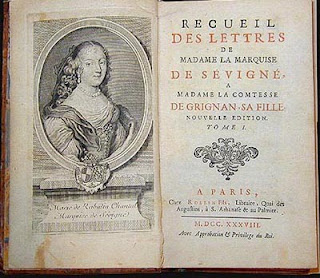Sévigné y su respetado cráneo
A skull, discovered during restoration work on the collegiate church of Grignan (in the Drí´me), is that of the Marquise de Sévigné, as we learned on Wednesday, May 18, from Bruno Durieux, Mayor of Grignan. Madame de Sévigné, symbol of the French epistolary tradition and the mother of the Comtesse de Grignan, was buried on April 17, 1696, in the noble tomb, where a sawed-up skull was discovered on Friday, May 13, among other remains, Mr. Durieux explained. This discovery “confirms without a doubt” the theory that, in 1793, revolutionaries, looking for lead to use for weapons and opening aristocratic tombs, had discovered the remains of Madame de Sévigné and had had the skull sawed apart, for an examination by a specialist, Mr. Durieux continued. According to this theory, the lower part of the skull was then resealed, “with the greatest respect,” in the tomb, he added.
“Si los hombres han nacido con dos ojos, dos orejas y una sola lengua es porque se debe escuchar y mirar dos veces antes de hablar.”
“Cuán feliz era yo cuando era una infeliz.”
ver, Fouquet
“Si los hombres han nacido con dos ojos, dos orejas y una sola lengua es porque se debe escuchar y mirar dos veces antes de hablar.”
“Cuán feliz era yo cuando era una infeliz.”
ver, Fouquet